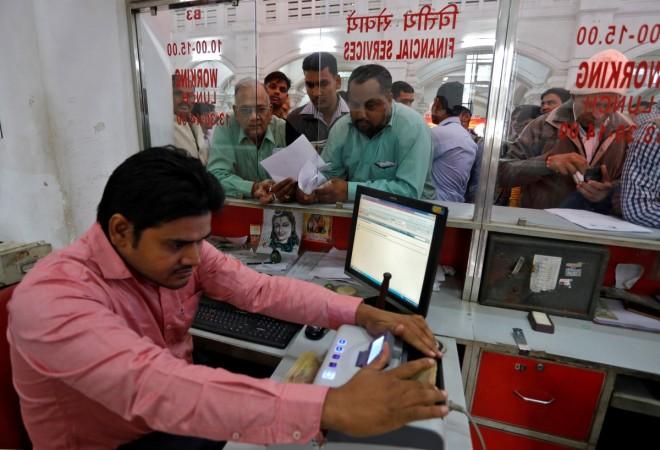
Update on November 30, 2016
The quarterly gross value added (GVA) at basic price at constant (2011-12) prices for Q2 of 2016-17 was estimated at Rs 27.33 lakh crore, as against Rs 25.52 lakh crore in Q2 of 2015-16, translating into a growth rate of 7.1 percent over the corresponding quarter of previous year, according to statistics released by the Central government on Wednesday at around 5.30 pm.
It's a tad unbelievable that an outgo of about Rs 34,600 crore during the July-September quarter (Q2) on account of salary arrears and enhanced pay to Central government employees did not boost the Indian economy in terms of higher consumption.
On Monday (November 28), the Modi government said the GDP growth rate for the April-September 2016 was 7.1 percent; when seen in the context of 7.1 percent expansion in Q1, it seems things more or less remained unchanged.
"Despite subdued growth in the world economy, India has maintained a GDP growth rate of 7.2 per cent in 2014-15, 7.6 per cent in 2015-16, and 7.1 per cent during April to September of 2016-17," Nirmala Sitharaman, commerce and industry minister told the Lok Sabha in a written reply on Monday, reported IANS.
In other words, the much-flaunted boost to the economy did not happen, despite the salary hike and arrears, in addition to a normal monsoon that was supposed to have lifted rural demand.
"The combined outgo for the Centre on account of arrears for January to July and payments for August will total Rs 34,600 crore," ratings agency India Ratings (Ind-Ra) had said in August.
The recommendations of the 7th CPC cover 47 lakh Central government employees and 53 lakh pensioners, of which 14 lakh employees and 18 lakh pensioners are from the defence forces.
Is there something amiss?
The question gains credence when seen with the growth in the volume sales for automobile companies, of 13.22 percent in July, 23.72 percent in August and 20.16 percent in September. If the increase in volume sales can't be attributed to pay hike, then it raises another question: did employees simply invest most of the money with banks and in other instruments, reflecting in a spike in bank deposits in September?









!['Had denied Housefull franchise as they wanted me to wear a bikini': Tia Bajpai on turning down bold scripts [Exclusive]](https://data1.ibtimes.co.in/en/full/806605/had-denied-housefull-franchise-they-wanted-me-wear-bikini-tia-bajpai-turning-down-bold.png?w=220&h=138)



